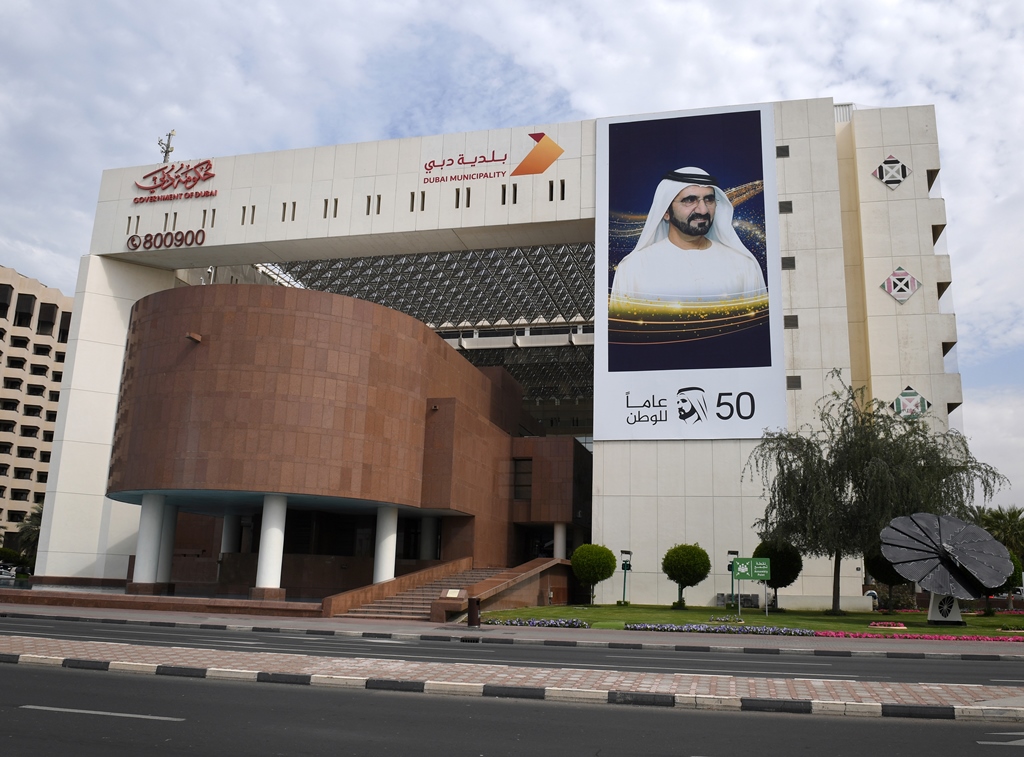Dubai Municipality to implement measures to raise emirate’s profile as a global model for sustainable development
04 August 2021
Implementation of Executive Council Resolution No. (58) of 2017 on waste disposal, effective 1 Jan 2022, will help streamline waste management in the emirate
Resolution allows recycling facilities to impose charges on the waste they receive and treat in their facilities
Municipality’s measures seek to reduce daily per capita waste generation from 1.1 kg by the end of 2021 to 0.9 kg by 2030 and 0.65 kg by 2041
Strategic plan for waste management aims to cut down and completely divert waste from landfills by 2030
Government of Dubai Media Office – 03 August 2021: As part of Dubai’s strategic plans to meet global sustainability benchmarks and achieve the environmental goals set in the UAE National Agenda, Dubai Municipality has announced a set of measures to enhance efficiencies in waste management in the emirate. The measures aim to set stringent standards for waste management so that they meet global benchmarks for health, safety, environmental sustainability and emission controls.
These new measures form part of the implementation of Executive Council Resolution No. (58) of 2017 on waste disposal in Dubai, effective from 1 January 2022. Based on legislative, administrative and technical best practices in the field of integrated waste management, Dubai Municipality’s new measures seek to achieve its strategic plan for waste management to reduce and completely divert waste from landfills by 2030.
The Municipality will work with various stakeholders including commercial companies, government agencies, industrial companies, private sector firms and other organisations to promote international best practices in sustainable waste disposal, inculcate a culture of efficient resource recovery from waste and raise the rate and quality of recycling. It will also seek to promote new investment and competitive opportunities in waste management and treatment as well as provide a safe work environment for waste management.
Environment Protection
Eng. Abdul Majeed Saifai, Director of Waste Management at Dubai Municipality, said: “Apart from promoting sustainability, the Executive Council Resolution No. (58) aims to efficiently regulate the waste management sector in the emirate and reduce its carbon footprint. In addition to encouraging private sector investment, the Resolution allows recycling facilities to impose charges on the waste they receive and treat in their facilities, thus enabling them to cover a large part of their operational costs and raise the economic feasibility of investing in this field.”
“Dubai Municipality plays a major role in protecting and preserving the environment through the federal and local legislative framework and achieving the Dubai Waste Management Strategy 2030 and the 17 Sustainable Development Goals announced by the United Nations for the year 2030,” he added.
The Director of Waste Management in Dubai Municipality explained that the Municipality’s measures will encourage all waste producers to start separating recyclable materials from waste production sites, whether they are companies, hotels, shopping centres or others. They will then send them to recycling facilities instead of landfills and have to pay fees for disposing waste. The imposition of disposal fees according to the weight of transported waste will help reduce the amount of general waste. Many industrial and commercial companies have already started implementing plans to reduce waste, and this trend is expected to gather pace with the implementation of Executive Council Resolution No. (58).
The new legislation will directly contribute to reducing the area of lands designated as landfills, freeing up these areas for housing projects, green spaces, parks and public services. Currently, there are six landfills in Dubai covering an area of about 1.6 million square meters. In the absence of strategic measures, the rising volume of waste expected from economic and population growth in the emirate can increase the area allotted to landfills to 5.8 million square metres by the year 2041.
Global Practices
The implementation of the new Resolution will encourage producers of general waste to fulfill their social responsibility to reduce waste and accelerate the search for alternative disposal options. With disposal of segregated waste costing less, waste producers are expected to ensure efficient management of the waste they produce. Waste producers can also gain financially by selling recyclable materials to authorised private waste management companies.
Innovative Projects and Solutions
Over the past years, Dubai Municipality has implemented a series of measures and awareness-buidling initiatives to reduce environmental pollution, increase waste recycling and promote sustainable consumption of natural resources. The Government of Dubai has also launched several projects to recycle waste and produce clean energy. The implementation of programmes, projects and initiatives as part of the Dubai Waste Minimisation Strategic plan approved by The Executive Council of Dubai is expected to reduce daily per capita waste generation rate from 1.1 kg by the end of 2021 to 0.9 kg by 2030 and 0.65 kg by 2041.
Executive Council Resolution No. 58 of 2017 lists 23 violations that can invite fines ranging from AED500 to AED50,000. Littering in public places and violation of health and environmental standards in the emirate will be subject to the provisions of Local Order No. 11 of 2003 and its executive regulations.


